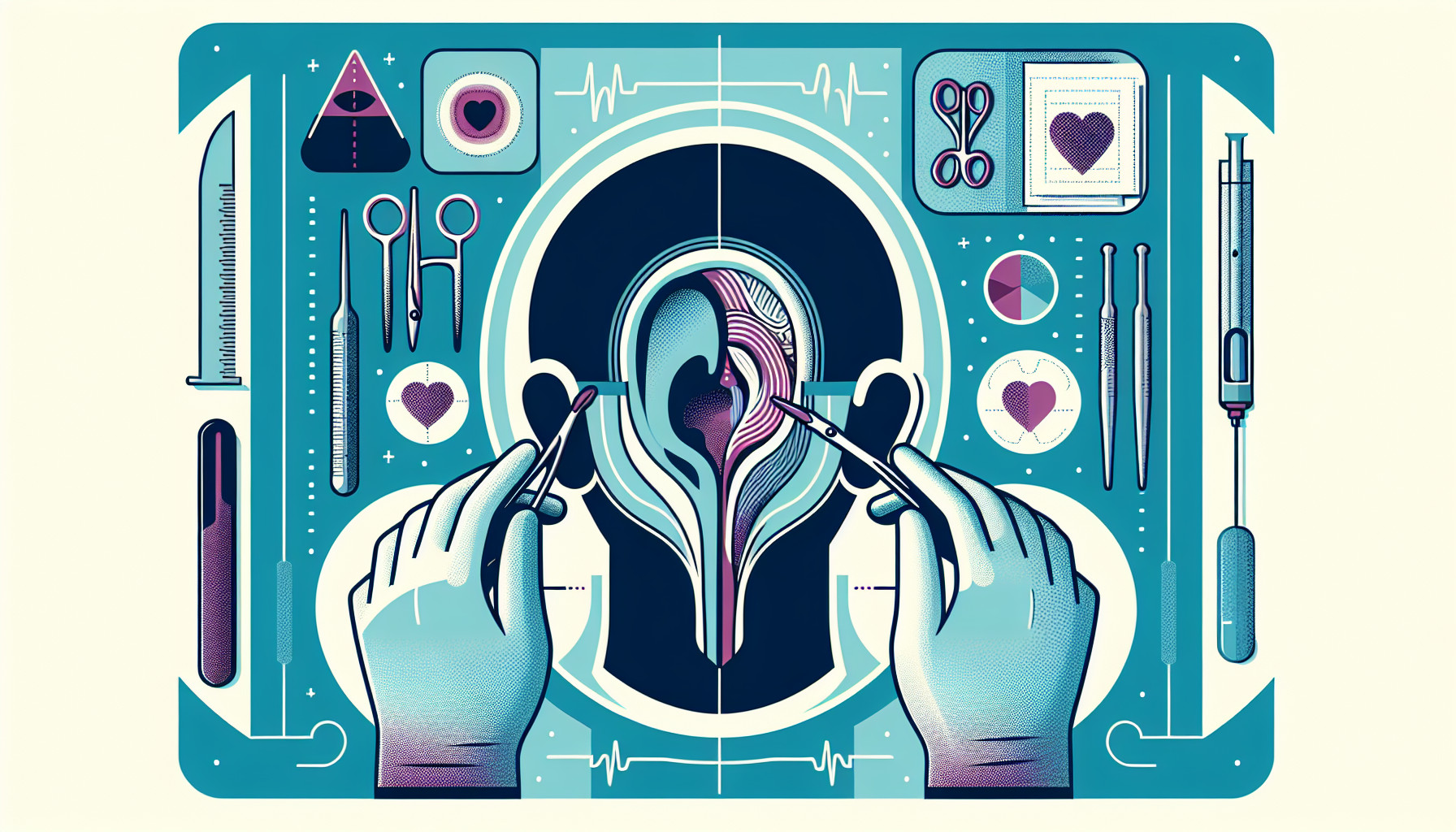Our Summary
This research paper is examining how rapid and severe weight loss, such as the kind experienced after bariatric (weight loss) surgery, can affect a patient’s ear health. Specifically, the researchers were studying the phenomenon where the lining of the ear tube loses fat and becomes “patent,” or open, leading to symptoms like hearing one’s own voice very loudly, a feeling of fullness in the ear, and ringing in the ears.
The study involved surveying 80 patients (77 women and 3 men) who had undergone bariatric surgery, about whether they were experiencing these symptoms. The researchers found that about 19% of the patients reported these symptoms after their surgery. They also found that the patients who reported these symptoms tended to have had a slightly lower body weight and body mass index (BMI) before surgery compared to the patients who did not report these symptoms.
In simple terms, the research suggests that patients who undergo weight loss surgery may have a risk of experiencing certain ear-related symptoms, and this risk might be somewhat higher for patients who were less overweight to begin with.
FAQs
- What potential ear-related symptoms may patients experience after undergoing bariatric surgery?
- Does the severity of weight loss after bariatric surgery affect the likelihood of experiencing ear-related symptoms?
- Is there a correlation between a patient’s pre-surgery weight or BMI and the likelihood of experiencing ear-related symptoms after bariatric surgery?
Doctor’s Tip
A doctor might advise a patient undergoing ear tube surgery to be aware of potential changes in their ear health after rapid weight loss, such as after bariatric surgery. They may recommend monitoring for symptoms like hearing their own voice loudly, feeling ear fullness, or experiencing ringing in the ears, and to report any changes to their healthcare provider. It is important for patients to communicate any new or concerning symptoms with their doctor to ensure proper management and treatment.
Suitable For
Patients who are experiencing symptoms such as hearing one’s own voice loudly, feeling of fullness in the ear, and ringing in the ears after rapid and severe weight loss, particularly after bariatric surgery, may be recommended ear tube surgery. These symptoms may indicate that the lining of the ear tube has become patent and is causing discomfort and hearing issues for the patient.
Patients who have undergone bariatric surgery and are experiencing these symptoms should consult with an ear, nose, and throat (ENT) specialist to determine if ear tube surgery is necessary to alleviate their symptoms and improve their ear health. Additionally, patients who had a lower body weight and BMI before their bariatric surgery may be at a slightly higher risk for experiencing these symptoms, as suggested by the research findings.
Timeline
Before ear tube surgery:
- Patient experiences symptoms such as hearing one’s own voice loudly, feeling of fullness in the ear, and ringing in the ears
- Patient may have undergone bariatric surgery leading to rapid weight loss
- Patient may have slightly lower body weight and BMI before surgery
After ear tube surgery:
- Patient undergoes ear tube surgery to address symptoms
- Patient may experience relief from symptoms such as hearing one’s own voice loudly, feeling of fullness in the ear, and ringing in the ears
- Patient may need to follow post-operative care instructions to ensure proper healing and prevent complications
- Patient may have improved ear health following surgery
- Patient may need to follow up with their healthcare provider for further evaluation and monitoring.
What to Ask Your Doctor
Some questions a patient should ask their doctor about ear tube surgery in relation to weight loss surgery could include:
- What is the likelihood of experiencing symptoms like hearing one’s own voice loudly, fullness in the ear, and ringing in the ears after bariatric surgery?
- How does rapid and severe weight loss affect the lining of the ear tube and potentially lead to these symptoms?
- Are there any preventative measures or treatments that can help reduce the risk of experiencing these ear-related symptoms post-surgery?
- How soon after bariatric surgery should I be monitored for any changes in my ear health?
- Are there any specific factors, such as body weight or BMI, that may increase the likelihood of experiencing these symptoms?
- What steps can I take to protect my ear health during the weight loss process and after surgery?
- Should I see an ear, nose, and throat specialist for further evaluation or treatment if I start experiencing any of these symptoms post-surgery?
Reference
Authors: Kinasz LRS, DE-Sousa HEV, Cavalcanti MAR, Polanski JF. Journal: Arq Bras Cir Dig. 2020 Nov 20;33(2):e1520. doi: 10.1590/0102-672020200002e1520. eCollection 2020. PMID: 33237164
